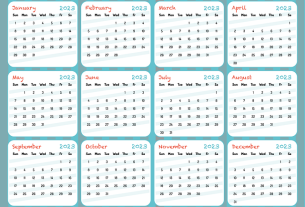Identifying community needs and interests is crucial for successful Event Planning for Local Businesses. By directly engaging with community members through surveys, focus groups, local meetings, social media analysis, and leader involvement, businesses gain insights into cultural events, environmental concerns, and social causes. Incorporating these passions and priorities into event design fosters a sense of belonging, attracts participants, and strengthens relationships between businesses and customers, leaving a positive, lasting impact on the community.
Community outreach events play a vital role in fostering connections between local businesses and their surrounding areas. Effective event planning begins by identifying community needs and interests. This involves understanding demographics, engaging with residents through surveys and focus groups, and aligning activities with local priorities.
Logistic considerations include accessible venues, realistic budgeting, and creative marketing strategies to attract diverse audiences. Event formats can range from workshops to cultural celebrations, catering to various preferences.
Successful events thrive on community engagement, ensuring inclusivity, and measuring impact through feedback and attendance. These initiatives build lasting relationships with community leaders, paving the way for future collaborations between local businesses and their neighbors.
- Identifying Community Needs and Interests
- – Understanding the local community: demographics, interests, and challenges
- – Conducting surveys and focus groups to gather feedback
Identifying Community Needs and Interests

Identifying Community needs and interests is a vital step in successful event planning for local businesses. By engaging directly with community members, business owners can gain valuable insights into what matters to their neighbors. This might include cultural events, environmental concerns, or social causes that resonate deeply within the community. Incorporating these insights into event planning fosters a sense of belonging and connection, ensuring that the activities align with the collective passions and priorities of those they aim to serve.
Event planners should employ diverse strategies to gather this information. Conducting surveys, hosting focus groups, and attending local meetings are effective ways to collect data on community needs. Additionally, analyzing social media conversations and engaging with community leaders can offer a wealth of insights. This holistic approach ensures that the events planned not only attract participants but also leave a lasting positive impact on the community, fostering stronger relationships between local businesses and their customers.
– Understanding the local community: demographics, interests, and challenges

Understanding your local community is a crucial step in successful event planning, especially for businesses aiming to engage and connect with their neighbors. When organizing events for local businesses, it’s essential to consider the demographics of the area—age groups, cultural backgrounds, and socioeconomic factors. This knowledge enables you to tailor activities and promotions that resonate with attendees, fostering inclusivity and ensuring a diverse turn-out.
Interests and challenges within the community can also guide event themes and initiatives. For instance, if your area boasts a vibrant arts scene, hosting a local artist exhibition or workshop might be well-received. On the other hand, addressing community challenges like environmental concerns or health issues through educational events can spark engagement and collaboration between businesses and residents.
– Conducting surveys and focus groups to gather feedback

In the planning stages of community outreach events, local businesses have an opportunity to engage directly with their target audience. Conducting surveys and focus groups are effective strategies for gathering valuable feedback from residents. These methods provide insights into community needs, preferences, and concerns, allowing event organizers to tailor activities that resonate with attendees. By incorporating local business interests, these events foster a sense of ownership and participation, ensuring higher levels of engagement and positive outcomes.
Surveys and focus groups offer structured avenues for collecting quantitative and qualitative data. Local businesses can design surveys to assess interest in various event themes or services, while focus groups facilitate deeper conversations around community issues and potential solutions. This feedback loop is instrumental in Event Planning for Local Businesses, enabling them to create impactful initiatives that drive community development and foster lasting connections.
By identifying and understanding the specific needs and interests of their local communities, businesses can transform event planning into a powerful tool for engagement. Through demographic analysis and direct feedback from surveys and focus groups, companies can tailor their outreach efforts to resonate with attendees. This strategic approach not only enhances community relationships but also fosters a sense of belonging and encourages ongoing participation. Event planning for local businesses has the potential to create meaningful connections and foster sustainable growth when centered on the interests and challenges of the surrounding area.



